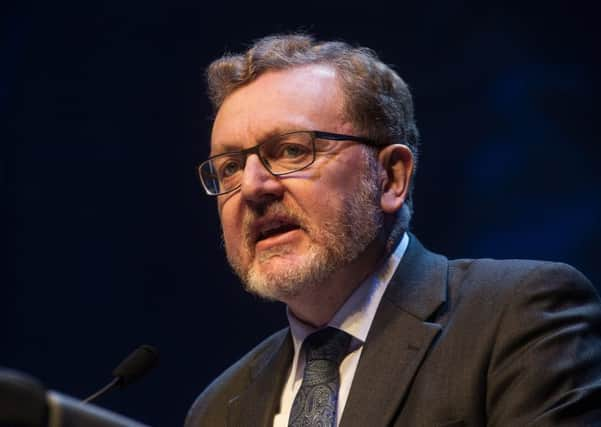David Mundell faces fresh calls to resign over £1bn DUP deal


In his first outing at Prime Minister’s Questions as Westminster SNP leader, Ian Blackford challenged Theresa May over whether Mr Mundell opposed the deal with the Democratic Unionist Party, or requested any additional funding for Scotland.
The Scottish Government has made a formal complaint to the Treasury about the agreement, arguing it violates rules governing the Barnett formula that determines the UK government contribution to spending in Scotland. The Welsh government has also called for a review, which is under consideration.
Advertisement
Hide AdAdvertisement
Hide AdPrior to the deal being agreed on Monday, Mr Mundell said he was “not going to agree to anything that could be construed as back-door funding to Northern Ireland”.
Accusing the Prime Minister of failing to give a “straight answer”, Mr Blackford twice demanded to know whether Mrs May had received “any representations from her Scottish Secretary about the DUP deal, either before or after it was signed”.
She replied: “I regularly receive representations from the Secretary of State for Scotland about matters relating to Scotland, including regular representations pointing out that if the Scottish nationalists actually had the interests of Scotland at heart, they would want to remain part of the United Kingdom.”
Mrs May said Scotland had received £800 million at the Autumn Statement and £350m in the Budget.
Commenting afterwards, Mr Blackford claimed the Scottish Secretary’s “failure to secure anything for the people of Scotland must now mean he cannot remain in his position”.
A source dismissed the criticism, saying the SNP were trying to “deflect” from Nicola Sturgeon’s “mounting difficulties” on a second independence referendum and her record in government.
The source added that Mr Mundell had demanded a transparent funding arrangement with the DUP that conformed with the Barnett formula, and has secured that in the deal.
Today sees the deadline for talks to try restore the power-sharing executive in Northern Ireland, with Nationalists Sinn Féin expressing concern at the crucial role being played by the DUP in shoring up the government.
Advertisement
Hide AdAdvertisement
Hide AdSources have warned that implementation of the £1bn funding package for infrastructure, education and health may be delayed unless agreement is reached by 4pm today.
There was an indication of the close relationship between Conservatives and the DUP, with government ministers calling MPs from the Northern Irish party their “honourable friends”.
Parliamentary protocol dictates that MPs from opposing parties usually refer to one another as “honourable members”, reserving the term “friend” for colleagues in their own party.
During the coalition of 2010-15, Conservative and Liberal Democrat ministers regularly addressed each other as “friend”.
“That is the terminology in which both parties will be addressing each other,” a Conservative source said.
There was criticism of the fact that, despite the deal, the ten DUP MPs will continue to receive “short money”, the public funding provided to support opposition parties in their parliamentary work.
Labour’s Kevin Brennan said that the continued provision of short money, along with the extra funding, amounted to “double bubble for her friends in the DUP”.
And the SNP’s Alison Thewliss claimed the £1bn funding deal in exchange for the ten DUP votes meant that each of the party’s MPs was “worth more than Ronaldo”, the Portuguese footballer transferred for just £80m.
Advertisement
Hide AdAdvertisement
Hide AdThe DUP’s Westminster leader Nigel Dodds defended the deal, saying extra funds would support mental health services dealing with “the legacy of 30 years of terrorism and violence”.
“Is it not time that people recognised that this is delivery for all the people of Northern Ireland, across all sections of the community, and that it is going to help some of the most vulnerable and disadvantaged people in Northern Ireland?” he said at PMQs.
“People should get behind it and welcome it.”